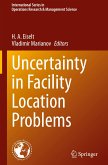This book examines cross-chain control centers (4C), an ambitious concept in supply chain management and logistics that is intended to foster collaboration between different supply chains to increase efficiency. It provides an overview of the main results, insights, and other developments in the academic field of horizontal collaboration. Furthermore, it gives recommendations to governments, commercial companies, and academia on how to proceed with horizontal logistics collaboration in the years to come.
To link research with practice, the book takes the Dutch project on cross-chain collaboration centers (4Cs) and identifies a typology of existing patterns for horizontal collaboration in supply chains. Finally, the book zooms in on the Netherlands as a case-study of intense public-private partnerships to develop 4C as a mature logistics value proposition. It provides an overview of the accomplishments in the government supported 4C projects and offers a critical reflection of why some more ambitious and structural solutions have not found solid ground yet.
The book is of value to researchers and professionals in the supply chain domain.
To link research with practice, the book takes the Dutch project on cross-chain collaboration centers (4Cs) and identifies a typology of existing patterns for horizontal collaboration in supply chains. Finally, the book zooms in on the Netherlands as a case-study of intense public-private partnerships to develop 4C as a mature logistics value proposition. It provides an overview of the accomplishments in the government supported 4C projects and offers a critical reflection of why some more ambitious and structural solutions have not found solid ground yet.
The book is of value to researchers and professionals in the supply chain domain.








